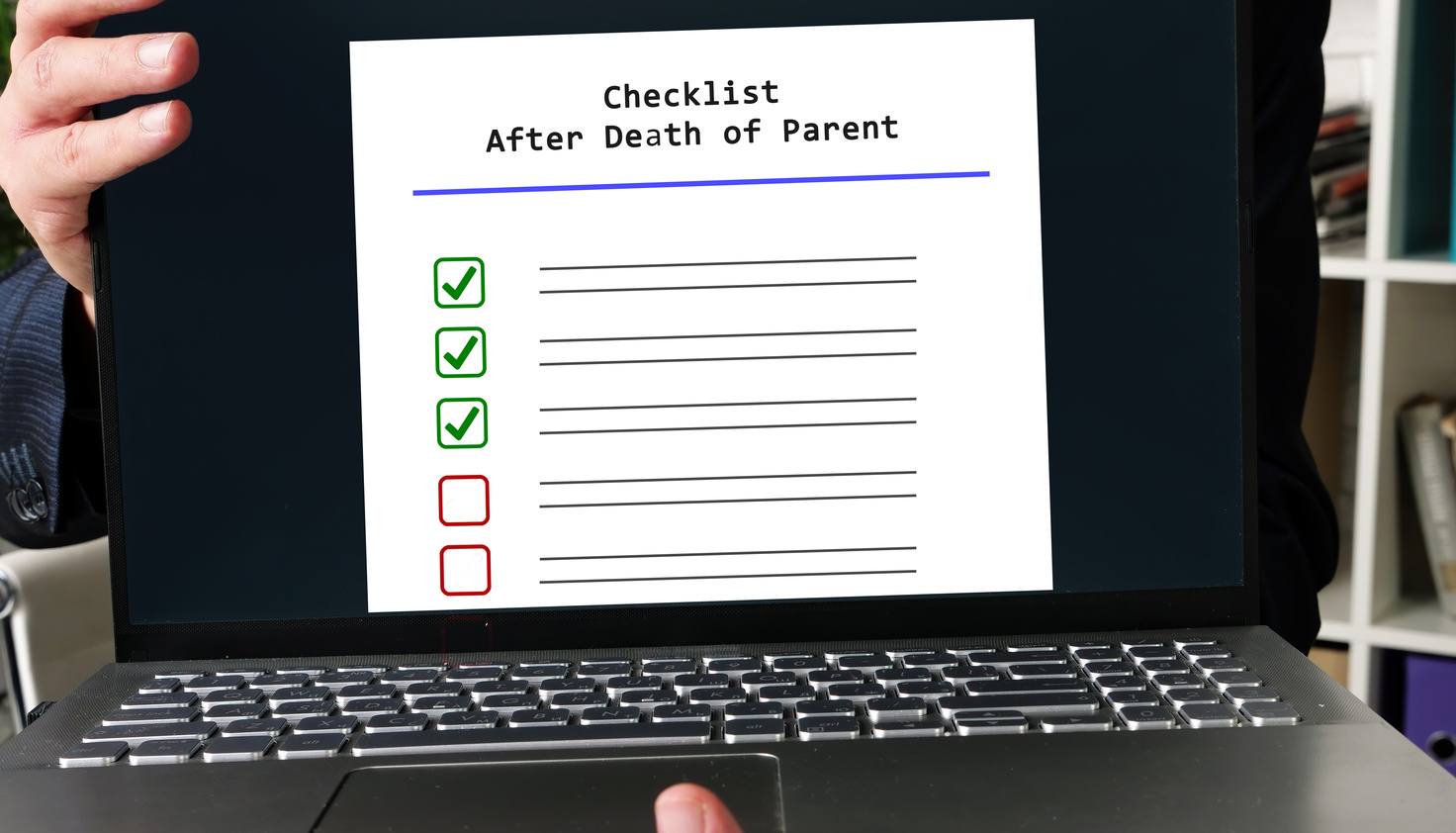You’re thinking of putting your home up for sale.
Or maybe you’ve already made that decision.
Now comes the age-old question…
“Do I need a Realtor to sell my house?”
You’re not entirely convinced that you do –– because you’re not sure if real estate commissions are worth paying.
But you’re also not sure how the home selling process works.
So you aren’t 100% comfortable listing your house yourself.
This article is here to help clear up any confusion.
I’m going to share seven key reasons why you will want to use a Realtor to list your home.
And while, yes, I may be biased…
My ultimate goal is to provide you with all the information you need to make your own decision.
Let’s explore whether you should use a real estate agent to sell your house.
Do I need a Realtor to sell my house?
You are not legally required to use a real estate professional to sell your home.
But according to the National Association of Realtors, 89% of home sellers choose to work with one.
Selling without a Realtor can be tempting if you want to avoid paying the standard 5-6% commission fee.
But it’s not that straightforward…
Here’s why…
You’ll likely still need to pay the buyer’s agent’s commission.
That’s typically ~2.5-3% of the final sale price.
However, you have three main options if you decide to sell your house without an agent:
- List for sale by owner (FSBO): You handle everything a real estate agent would, from home listing to closing. FSBO requires substantial time and expertise in the home selling process.
- Use a flat fee MLS listing service: You can usually pay a few hundred dollars to have a real estate broker or company list your home on the Multiple Listing Service (MLS). Being on the MLS increases your home’s visibility, but you’ll still have to manage the entire process yourself.
- Sell to an investor: Real estate investors offer quick, cash sales. You can skip paying real estate commissions, but the prices investors are willing to offer are generally ~15-30% below market value.
Not using an agent requires a significant time commitment, expertise, and specialized skills.
What are the challenges of selling your home on your own?
Listing your home without an agent might seem like a good idea.
But many FSBO sellers jump in, unaware of the obstacles they’ll face.
That’s why it’s crucial to understand what you’ll be up against before determining whether you really need a real estate agent.
Here are the challenges of selling without a Realtor.
Setting the right price takes experience
Setting the right list price is the number one challenge for home sellers not using an agent.
Many think that it’s as simple as looking up an online estimate.
Or relying on an appraisal.
But online estimates don’t account for your property’s unique nuances.
And appraisers use a cookie-cutter approach that doesn’t factor in critical home value adjustments.
Effective pricing requires knowing how to:
- Pick the right comparable sales
- Make the right value adjustments
- Gauge local market trends.
Without this insight?
You risk setting the wrong asking price.
And overpricing is the number one reason why a house sits on the market.
While underpricing means potentially losing money.
Realtors may not show a FSBO home
Homeowners often get an unwanted surprise when listing their own property…
Many agents hesitate to show FSBO homes to their clients.
Why?
Because FSBO sellers are more likely to have unrealistic expectations.
And their sale is more likely to increase an agent’s legal risk.
Which is why many real estate agents prefer working with another licensed professional.
But fewer Realtors showing your home means fewer potential buyers.
And fewer potential buyers can lead to fewer offers.
Potential legal mistakes
One of the biggest hurdles sellers don’t consider is the complex legal paperwork in a real estate transaction.
Documents like:
- Purchase agreements
- Seller’s disclosures
- Contract addendums
- Preliminary title reports
- Title affidavits.
One mistake can open you up to legal issues.
For example…
Say you fixed a past basement flooding issue years ago but failed to disclose it.
Then, the basement floods post-sale.
You could face legal action from the new owners.
Many sellers who don’t use a listing agent overlook these legal complexities.
You can find basic guidance on YouTube or Reddit –– but this doesn’t replace a real estate professional’s advice.
And it won’t protect you if a legal issue pops up.
Negotiating takes skill and experience
Negotiating with a buyer’s agent isn’t like negotiating at a car dealership.
You’re negotiating tens of thousands (or hundreds of thousands) of dollars.
And you’re also negotiating critical terms of the sale.
A successful negotiation is like a game of chess.
That’s because you need to understand the intentions behind what the buyer’s agent is saying.
For example…
Say you’re selling your home yourself and get a call from an experienced buyer’s agent.
They ask, “Is your asking price negotiable?”
Saying “yes” might weaken your position.
But answering “no” could scare away a solid buyer.
A seasoned buyer’s agent knows how to work sellers who don’t have an agent.
These types of interactions with real estate agents are a challenge that many prospective solo home sellers don’t think about.
It’s time-intensive
Selling your property on your own is more time-intensive than you might think.
How?
Because taking the FSBO route involves:
- Pricing and listing
- Staging and taking photos
- Marketing to attract the right buyers
- Coordinating showings and open houses
- Communicating with agents and prospective buyers
- Dealing with inspectors, appraisers, and the escrow company
- Evaluating and negotiating offers
- Handling closing.
Some states also require that a real estate attorney be involved.
All of these tasks demand significant time and attention.
Emotional attachment
Many homeowners underestimate the emotional aspect of selling their own home.
But it can be a real challenge.
Your house is more than just property.
It’s filled with memories.
But this emotional attachment can easily cloud your judgment.
Especially when it comes to making important decisions like pricing and negotiating.
7 reasons why you should use a Realtor to sell your house
There are many advantages to working with an agent to sell your home.
They can help with things like setting the right price, avoiding legal issues, and navigating the complexities of a real estate transaction.
Think of their guidance in the same way as you would a lawyer’s help when preparing for a major legal trial.
You wouldn’t proceed in such a critical situation without an attorney.
So are you comfortable navigating one of the largest financial transactions of your life without a listing agent?
Let’s look at seven key benefits of using a Realtor to sell your house.
1. Weed out unqualified buyers
Many home sellers assume that every buyer is a “good” buyer.
That’s not the case.
Good buyers are serious and financially capable.
How does a real estate agent ensure this?
They weed out unqualified buyers.
They do this by:
- Reviewing pre-approval letters
- Confirming proof of funds
- Grilling buyers’ loan officers on things like pre-approval criteria and debt-to-income ratio.
This due diligence ensures that an interested buyer:
- Can afford your home
- Has sufficient funds for their down payment and closing costs
- Has wiggle room in the event of negotiations.
This vetting process is crucial.
Why?
Because failing to filter out “bad” buyers can lead to your sale falling apart.
Which means having to re-list your home.
And properties that go back on the market often get flagged as “problematic.”
An agent’s expertise in vetting buyers mitigates these risks, which increases the chances of a quicker and more profitable sale.
2. Reach more buyers
Part of an agent’s job is to market your home.
That goes beyond listing it on the MLS or the big real estate websites.
It requires a comprehensive marketing strategy.
That means identifying the right marketing channels to reach your home’s ideal buyer.
And presenting your property in a way that attracts their attention.
These aspects are all critical for reaching a wider audience of interested buyers.
It’s much harder to get the same reach without using a Realtor.
You might miss key platforms or fail to target the right audience.
Plus, you may not be willing to invest in premium marketing tactics like video or drone photography.
All this limits the exposure of your listing.
And fewer eyes on your property means fewer offers.
That’s why a key advantage of using a Realtor is their ability to reach a wider pool of prospective buyers.
3. Tap into a professional network
Tapping into a Realtor’s professional network offers significant benefits for home sellers.
They’re connected with other agents, which can instantly broaden the exposure of your property.
They can recommend trusted service providers like home inspectors, lawyers, and contractors, ensuring high-quality services at every stage.
And you can leverage their relationships with photographers and staging professionals, crucial for presenting your home in the best light.
The collaborative efforts of these professionals help streamline the selling process.
But the real benefit of having access to a Realtor’s network?
You’re leveraging a dynamic ecosystem where you can get guidance, expertise, and resources that are invaluable in achieving a successful sale.
4. Secure a higher sales price
Getting the most money for a home isn’t just luck.
It takes skill.
That’s where a Realtor’s expertise in pricing, marketing, and negotiating shines.
They understand your local real estate market and how to leverage recent sales data to price your listing right.
They know how to market your property to attract the right buyers.
And they negotiate to secure you the best possible deal.
Which is why it’s unsurprising that homes listed with an agent sold for an average of $95,000 more than FSBO homes.
This difference underscores the value of an agent’s knowledge and skills in getting top dollar.
Most sellers simply don’t have this expertise.
Which is why maximizing your sales price is more difficult when selling without an agent.
5. Enjoy an easier home sale
Not using a real estate agent can be overwhelming.
But an agent’s expertise can make it much less stressful.
Not only do they know how to navigate unexpected challenges.
But they can make the entire process of selling your home smoother and a whole lot easier.
You’re on your own as a FSBO seller.
From figuring out disclosures to coordinating showings to maintaining communication with all parties.
A listing agent does all of this for you.
They carry the heavy workload so that you can focus on your next move.
That burden of work is a primary reason why it’s beneficial to use a real estate agent.
Unfortunately, many sellers who go at it alone don’t realize this until it’s too late.
6. Avoid emotionally guided decisions
An agent’s ability to maintain emotional detachment can be a major benefit.
How?
Because they bring objectivity, which helps you make decisions based on logic rather than emotions.
For instance…
A real estate agent can provide guidance on setting an asking price based on a realistic value.
But a seller without an agent might overprice their house because it means so much to them.
Or they might turn down a reasonable request that feels “insulting” when negotiating.
Emotional decision-making like this can backfire.
At best, it can lead to your house lingering on the market.
At worst, it can cause your sale to fall through.
The objective detachment an agent brings to the table is often overlooked.
But it’s an underrated reason why using an agent can be highly beneficial.
7. Maximize your home’s appeal
You might think you know what buyers want in a potential home.
But what if you’re wrong?
Real estate agents understand what attracts buyers.
So they’ll advise you on how to optimize your home’s appearance to match these preferences.
That means guiding you on things like:
- Curb appeal
- Repairs or upgrades that bring you the most return
- Staging techniques.
This guidance can be invaluable when getting your house ready to sell.
Because their expertise can lead to more interest in your home, which often translates to a higher price and a quicker sale.
Tips for making the right decision
Selling your home is a major decision — personally and financially.
Which is why the thought of not paying a fee to a listing agent can be enticing.
But there are several factors to consider before making that choice.
Here are the things to think about when deciding whether you should use a Realtor to sell your home.
Evaluate your market knowledge and expertise
Consider how well you understand the real estate market.
You’ll need to grasp things like pricing, local trends, and legal requirements for a successful sale.
For example…
How would you determine what price to list your home at?
Would you base your decision on what Zillow says?
Or maybe you would look at a few nearby recent sales and take a guess based on the differences of square footage, bedrooms, and bathrooms?
You could get lucky, but that’s not how to properly price a home for sale.
You need to consider the best comparable sales.
And then make the right price adjustments for key differences.
That means not only making the right value adjustments for the basics such as square footage, bedrooms, and bathrooms.
But also for other variables that play a factor in buyer desirability.
A real estate agent brings this expertise.
But without this knowledge?
You risk selling for a lower price and/or having your listing become stale.
So think about whether you have the needed expertise before choosing to sell solo.
Assess your ability to manage challenging conversations
I recommend assessing your comfort level with difficult conversations.
Because you’ll need to have them when selling on your own.
Imagine negotiating an offer with a “shark-like” agent.
Or getting unsolicited calls from pushy Realtors.
I’m talking about agents who tell you they want to preview the home for a buyer client.
But they don’t really have a client; they’re only trying to get you to list with them.
You’ll need to handle interactions like these by yourself in a FSBO deal.
This can be challenging without the right skills.
Part of a Realtor’s job is to handle uncomfortable conversations for you.
So factor in your ability to have these discussions when deciding whether you should hire a Realtor.
Consider the financial implications
Carefully weigh the financial aspects as part of your decision to sell with or without a real estate agent.
But think beyond the money you might save on an agent’s commission.
Instead, focus on the overall financial outcome.
Why?
Because Realtors often secure higher selling prices and faster sales.
This benefit could outweigh the 2.5-3% listing agent fee saved by listing on your own.
For example…
A home that sells for $500,000 might save a seller ~$12,500 in commission.
But a real estate agent’s marketing strategy will almost always attract more buyers.
And many agents know how to negotiate higher prices.
These aspects can bring you a more profitable, quicker deal.
Factor in your time spent on showings and handling agents, and the stress involved.
Are the commission savings worth it?
Don’t underestimate your time and availability
Selling a home takes more than throwing up a “For Sale” sign in the yard.
It’s a time-consuming process involving tasks like:
- Marketing
- Managing showings
- Negotiating
- Handling paperwork.
Do you have the time (and energy) for these duties?
Because not working with a real estate agent means doing all these things yourself.
And the laundry list of agent tasks can be tough when juggling a busy schedule or other commitments.
An agent handles these aspects for you, which frees up your time and reduces stress.
Choosing the right agent for your home sale
Choosing the right agent is critical.
Make the right decision and you’ll maximize your profits and streamline your transaction.
But pick the wrong agent?
You might as well sell on your own.
So you need to know how to choose the right agent to sell your home if you decide to go that route.
Here are the most important things to consider:
- Relevant selling experience: Agents with experience selling in your area will have invaluable insights about your local market — more than what can be “Googled.”
- Low dual agency rate: A Realtor who doesn’t have a bloated history of acting as a dual agent (representing both buyer and seller in the same deal) is likely to have more integrity. It shows that they’re more concerned about their client’s interests than earning double commission.
- Stellar feedback: Consistent positive feedback indicates a real estate agent’s reliability and trustworthiness.
- No contract commitment: An agent who allows you to cancel your listing agreement if you’re unsatisfied will likely prioritize your listing and stay motivated. That’s because their commission is on the line.
How to minimize costs when selling your home
There are ways to cut costs when selling — even if you hire an agent.
Here are some tips to save money during your home sale if you partner with a Realtor.
- Negotiate your listing agent’s commission: Agent fees are always negotiable. You can also ask if the buyer’s agent’s fee can be waived if the buyer doesn’t have an agent.
- Don’t pay escrow/title fees: Escrow and title fees are part of real estate transactions — but they aren’t set in stone. The buyer and seller often pay their own costs. But this can vary by state and county. If it’s standard where you live for the seller to pay these fees, inform your agent up front that you’d prefer the buyer handle them. Your real estate agent can negotiate this from the start.
- Avoid unnecessary repairs and improvements: Not all repairs and upgrades are worth the investment. Ask your agent’s advice on home improvements that will boost its value and bring the highest return. Then determine if any are worth the effort and focus on those.
These strategies can make for a more cost-effective sale when working with a real estate agent.
The bottom line: Making the right choice in your home selling journey
Many factors are at play when deciding if you need a real estate agent to sell your house.
These include your expertise in pricing, gauging current market conditions, handling the real estate contract, the time you can commit, and more.
But ultimately it comes down to what’s right for you:
- What are your financial goals for the sale?
- How confident are you about understanding the legalities?
- Can you handle complex negotiations?
- Will your schedule allow the dedication required for a successful FSBO sale?
These questions can guide you toward determining whether you should use an agent.
And if partnering with a real estate agent sounds like the right choice…
Our screening process can simplify your decision by taking the guesswork out of finding the right agent. Our no-cost service connects sellers like you with the top local listing agents.





